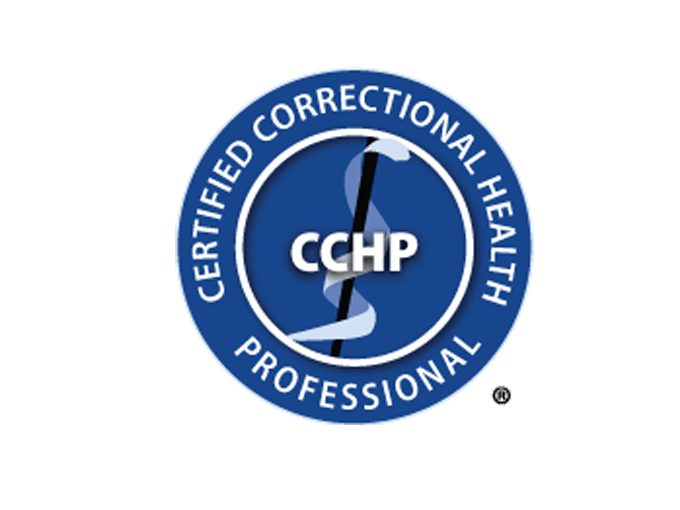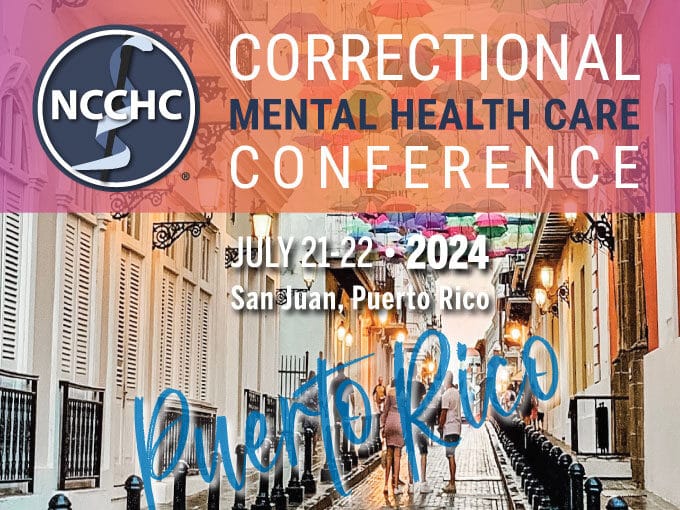
Standards Q&A: 75% Custody Health Training Requirement
Does the 75% requirement refer to all custody staff or only those working during
Home NCCHC Partners With the American Foundation for Suicide Prevention
 Aug 13, 2018
Aug 13, 2018Suicide remains one of the 10 leading causes of death in the United States and, according to the U.S. Department of Justice, it is the leading cause of death in jails. Incarcerated people are particularly vulnerable to suicide, for a variety of complex reasons.
The nation’s largest suicide prevention organization, the American Foundation for Suicide Prevention, has joined the National Commission on Correctional Health Care’s ongoing efforts to reduce the number of suicides among incarcerated populations. The organizations’ innovative partnership highlights a key focus of AFSP’s Project 2025, which aims to reduce the annual suicide rate by 20 percent by 2025, and brings AFSP’s depth of expertise to NCCHC’s National Response Plan for Suicide Prevention.
In conjunction with NCCHC’s annual Correctional Mental Health Care Conference in July, leaders of both organizations convened with mental health experts from the nation’s largest jail and prison health care providers at a daylong Suicide Prevention Summit, cosponsored by NCCHC and AFSP. Together, participants delved in to three areas identified by the group as crucial in suicide prevention—assessment, intervention, and training. The partnership is finalizing elements of its National Response Plan for Suicide Prevention in corrections, which will include needed tools and guidance for correctional facilities across the nation to help them combat suicide.
“Partnering with NCCHC, a longtime national leader in the field of correctional health care, is critically important and will allow us to reach an audience that is especially vulnerable to suicide,” said Bob Gebbia, AFSP’s CEO. “Research tells us that people in times of transition are at especially high-risk for suicide. Partnering with NCCHC will enable us to educate both correctional staff and health care professionals who work in the correctional system about suicide risk and how to identify and care for the suicidal inmate-patient. We know we can’t do this alone. Only by working with experts like NCCHC will we be able to save more lives.”
“This partnership creates a real opportunity to bring forth major interventions with the potential for immediately saving lives,” said Brent Gibson, MD, MPH, CCHP-P, NCCHC’s chief health officer. “We greatly appreciate AFSP’s focus and support. The collaboration between our organizations and national health care providers underscores the importance of working together to tackle the problem of suicide.”
This was the third in an ongoing series of Suicide Prevention Summits hosted by NCCHC. The initiative was launched in 2017, when senior staff from five national providers of correctional health care met in Chicago for a day of collaborative problem-solving. NCCHC educates health care professionals on suicide risk and outlines current best practices for suicide prevention and intervention in its Standards for Health Services, the basis of its health care services accreditation and professional certification.
AFSP’s Project 2025 is focused on four critical areas where evidence points to saving the most lives in the shortest amount of time, one of which is the correctional system where contact with jails and prisons represents high-risk periods for suicide. By focusing on the correctional system, AFSP believes more than 1,000 lives can be saved by 2025.
Launched in October 2015, Project 2025 is a high-impact, collaborative initiative developed by AFSP, aimed at achieving the organization’s bold goal of reducing the annual suicide rate 20 percent by 2025. Using a dynamic systems model approach based on what the evidence tells us about suicide, AFSP has determined a series of actions and critical areas to help us reach our goal. With this approach we reach across all demographic and sociological groups to have the greatest impact for suicide prevention and the potential to save thousands of lives within the next 10 years. If we work collectively to expand the above interventions in key areas (Firearms, Emergency Departments, Healthcare Systems, and the Corrections System) – cumulatively, we can expect to save nearly 20,000 lives through 2025.


